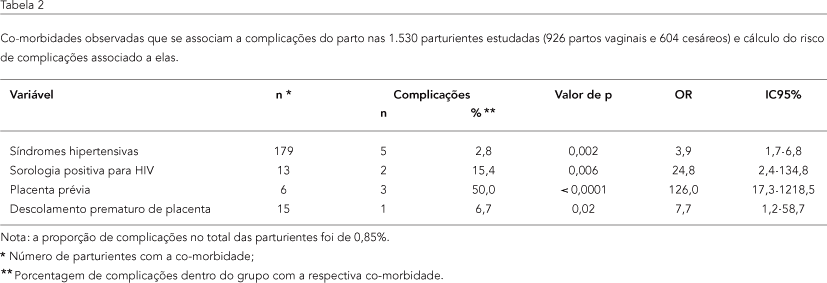The purpose of this study was to assess the relationship between mode of delivery and maternal complications, based on a retrospective cohort of all births at a public hospital in 2003. Complications included: infection, hemorrhage, hysterectomy, uterine rupture, lesions in adjacent organs, deep venous thrombosis, and pulmonary embolism. The analysis used odds ratio (OR), chi-squared test, and Fisher's exact test, besides logistic regression. Fifteen complications were identified. Taking vaginal delivery as the reference, an association was found between cesarean section and overall complications. Analysis of confounding showed an association between hypertension, HIV, placenta previa, and abruptio placentae. After controlling for these variables, an association remained between overall complications and cesarean section (OR = 9.7; p = 0.04). Another analysis comparing elective cesareans and vaginal deliveries also showed an increased risk for cesarean (OR = 4.7; p = 0.02). Finally, comparing elective cesareans with trial of labor, we found an increased proportion of complications in elective cesareans, with borderline significance (OR = 3; p = 0.058). We concluded that cesarean section is associated with maternal morbidity, even after controlling for confounders.
Parturition; Postoperative Complications; Puerperal Disorders



